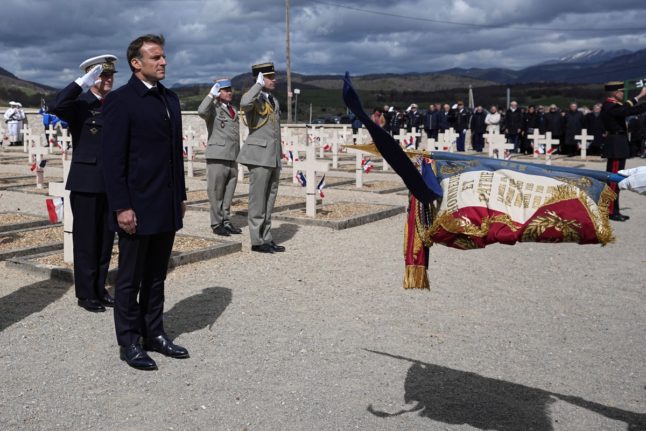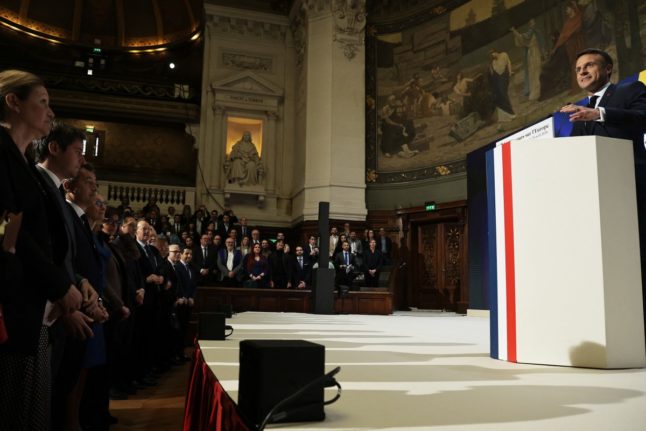The Resistance used the Vercors Plateau as a refuge after the occupation of France from 1940, receiving airdrops from the Allies and even occasional visits by British agents with the top-secret Special Operations Executive unit.
With 2024 marking the 80th anniversary of the D-Day landings, Macron is making a series of high-profile commemorations to remember Resistance heroes, but also to note the role played by French collaborationist militia in the German occupation.
“Here, 80 years ago, French people killed other French people,” Macron said in the village of Vassieux-en-Vercors.
It was the first such commemoration in the village by a French president. Conspicuously, he had chosen to visit on April 16 – the date marking 80 years since the French militia attacked the Resistance holdout – rather than July 21 when German army forces launched a full-scale assault.
“Let us also remember these French people, their choices and errors,” Macron said, referring to the collaborators. “Because it was not just a time when French people did not love each other. It was also a time when some French people did not love France.”
Resistance members began to gather on the Vercors plateau from 1942 and came to number some 4,000 people.
They were mostly French but also included about 50 Senegalese infantrymen and 30 Polish teenagers, a presidential adviser said.
Rene Heren, 97, was one of those who took part in sabotage operations against the Germans.
“We didn’t want our country to be invaded,” said the former Resistance fighter, who was 17 years old at the time.
He also helped ferry the wounded to a field hospital in a nearby town, which saved his life when the Germans attacked.
The French militia’s attack on April 16, 1944, did not end the activities of the Resistance on the plateau, with the Allies seeing it as potentially crucial to the landings in northern and southern France later that year.
Resistance members in early July even declared the Free Republic of Vercors, seen today as linked to the modern French republic.
But the German army attack, involving some 10,000 soldiers, in July wiped ir out, destroying 570 houses and killing 840 Resistance fighters and civilians, including 73 villagers.
“They were aged 18 months to 91 years old”, village mayor Thomas Ottenheimer said in the main square, in front of a monument to those who lost their lives.
Their names engraved in stone show “where hatred leads”, he said.
The July attack was the biggest operation by the Wehrmacht against Resistance fighters in western Europe during World War II.
It came just weeks before the Allied landings in southern France and the liberation of the area from German control.
This year’s commemorations peak in June with the 80th anniversary of the 1944 Normandy landings. A host of world leaders are expected to attend, including US President Joe Biden.
Russian representatives would also be invited to “honour the importance of the commitment and sacrifices of the Soviet peoples” during the war, but President Vladimir Putin would not, organisers said.
In August, France will mark the liberation of Paris from Nazi occupation.



 Please whitelist us to continue reading.
Please whitelist us to continue reading.
Member comments